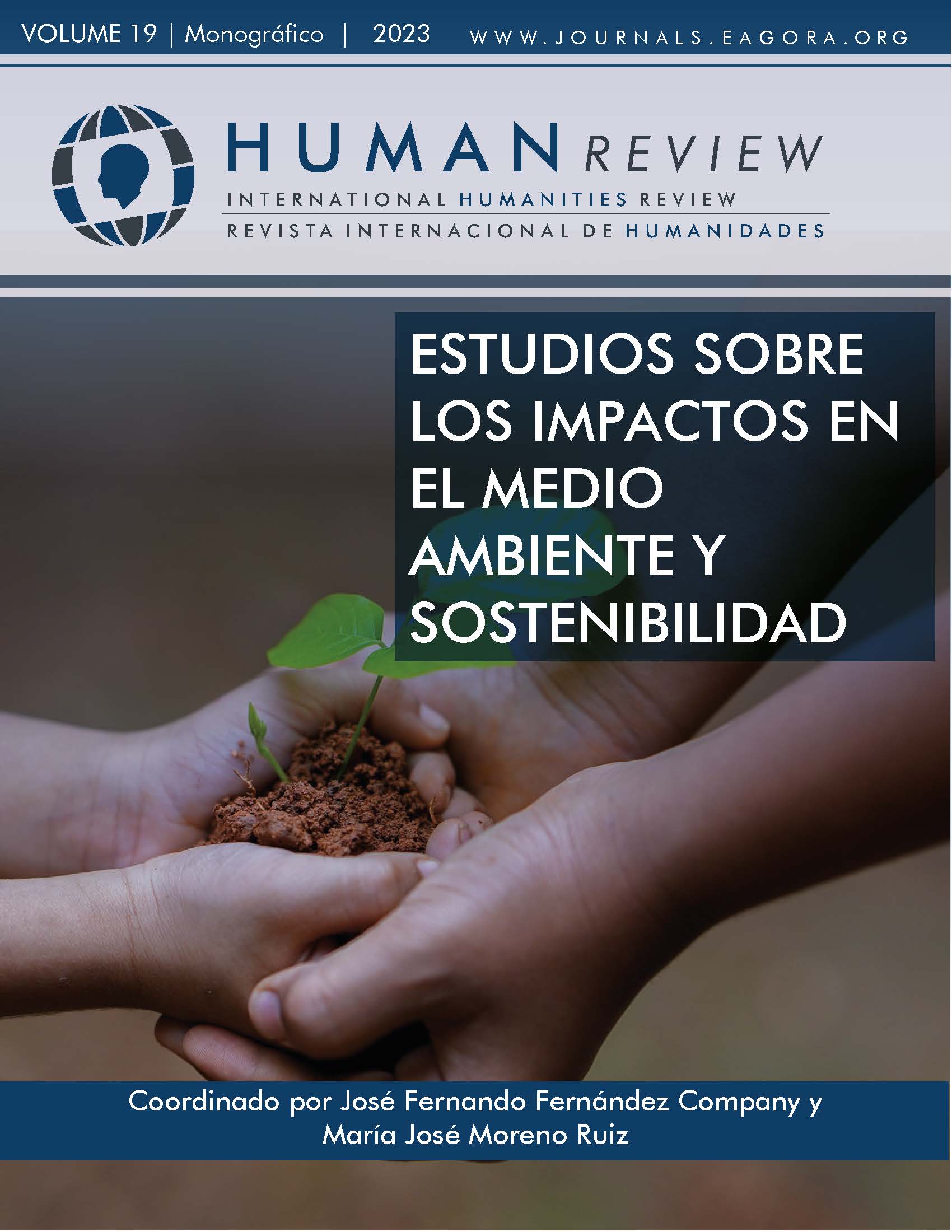Indigenous entrepreneurship: a generator of social capital and respectful of the natural ecosystem
DOI:
https://doi.org/10.37467/revhuman.v19.4926Keywords:
Entrepreneurship, Indigenous communities, Economic growth, Unemployment, EcosystemAbstract
Entrepreneurship is considered a development strategy. The objective of this research is to discuss the importance of indigenous entrepreneurship in their localities and the relationship that these entrepreneurial impulses have with economic growth; for this purpose, a hermeneutic method is used with emphasis on the thematic literature on entrepreneurship in indigenous communities. The main results show that indigenous enterprises are creators of social capital and respectful of the natural ecosystem and add value by integrating in their products and/or services particular characteristics of their cultures, having successive activity in the primary production sectors.
References
Acs, Z.J.; Audretsch, D.B.; Braunerhjelm, P. & Carlsson, B. (2015). «The missing link the knowledge filter and entrepreneurship in endogenous growth», Working Paper 4783. London. Center for Economic Policy Research.
Acs, Z.L.; Audretsch, D.B.; Braunerhjelm, P. & Carlsson, B. (2012). Growth and entrepreneurship. Small Business Economics, 39: 289-300.
Almodóvar González, Manuel (2016). Actividad emprendedora y crecimiento económico, en Tesis doctoral, España, Universidad de Extremadura.
Alonso-Martínez, D. et al. (2015). “La Innovación social como creación de empresas”, en Universia Business Review, 3, 48-63.
Alonso, J. A. (1998): Metodología. Editorial Limusa. México.
Amorós, J.E.; Fernandez, C. & Tapia, J. (2012). Quantifying the relationship between entrepreneurship and competitiveness development stages in Latin America. International Entrepreneurship and Management Journal, 8: 249-270.
Aparicio, S.; Urbano, D. & Audretsch, D.B. (2015). Institutional factors, opportunity entrepreneurship and economics growth: Panel data evidence. Technological Forecasting & Social Change.
Audretsch, B. (2007): «Entrepreneurship capital and economic growth», Oxford Review of Economic Policy, vol. 23, nº 1, pp. 63-78.
Barki, E., Comini, G., Cunliffe, A. L., Hart, S., & Rai, S. (2015). Social Entrepreneurship and Social Business: Retrospective and Prospective Research.
Benz, M. (2009). Entrepreneurship as a non-profit seeking activity. The International Entrepreneurship and Management Journal, 5: 23-44.
Bustamante, Juan C. (2004). “Crecimiento económico, nuevos negocios y actividad emprendedora”, en Visión Gerencial, año 3, nº 1, vol. 3, pp. 3-15.
Corporación Andina de Fomento. (2013). Emprendimientos en América Latina: Desde la subsistencia hacia la transformación productiva. CAF.
De Jorge-Moreno, Justo (2017). “Influencia del emprendimiento Sobre el crecimiento económico y la eficiencia: importancia de la calidad institucional y la innovación Social desde una perspectiva internacional”, en Revista de economía mundial, 46, 137-162.
Fritsch, M.; Kritikos, A. & Pijnenburg, K. (2015). Business cycles, unamployment and entrepreneurial entry–evidence from Germany. International Entrepreneurship and Management Journal, 11: 267-286.
Galindo, M. A.; Ribeiro, D. y Méndez, M. T. (2012): “Innovación y crecimiento económico: Factores que estimulan la innovación”, en Cuadernos de Gestión, vol. 12, pp. 51-58.
García Fuentes, M. (2013). “Hacia el emprendimiento de alto impacto”, en Entrepreneur. Recuperado de: https://www.entrepreneur.com/article/266218
GEM (2015). Global Entrepreneurship Monitor: Reporte Nacional 2015, México. Recuperado en: https://www.gemconsortium.org/report
Habermas, J. (2002): Verdad y Justificación. Editorial Trotta.
INEGI (2010). XIII Censo General de Población y Vivienda, México, Instituto Nacional de Estadística, Geografía e Informática.
Hernández Sampieri, Roberto. 2016. Metodología de la investigación. Mc Graw Hill. México, D.F. 501 p.
Laville, J. L. (2000). L’économie solidaire, une perspective internationale. París: Éditions Desclée de Brouwer.
Liñán, F. & Fernandez-Serrano, J. (2014). National culture, entrepreneurship and economic development: different petterns across the European Union. Small Business Economics, 42: 685-702.
Lupiáñez Carrillo, Luis; Priede Bergamini, Tiziana y López-Cózar Navarro, Cristina (2014). “El emprendimiento como motor del crecimiento económico”, en Boletín Económico de ICE, nº 3048, pp. 55-63.
Mackey, John & Sisodia, Raj. (2013). Conscious Capitalism: Liberating the Heroic Spirit of Business.
Méndez, R. I. (1987): Paradigma cuantitativo vs. Paradigma cualitativo en la investigación. Departamento de estadística y matemáticas aplicadas de la UNAM (MIMEO).
Mundo ejecutivo (16 de noviembre de 2018). “Emprendimiento de alto impacto, reto del nuevo gobierno”. Recuperado de: http://mundoejecutivo.com.mx/economia-negocios/pymes/2018/11/16/emprendimiento-alto-impacto-reto-nuevo-gobierno/
Romer, P. M. (1986). “Increasing Return and Long-run Growth”, Journal of Political Economy, 94, 1002–1037.
Scholman, G.; Van Stel, A. & Thurik, A.R. (2015). The relationship among entrepreneurial activity, business cycles and economics openness. International Entrepreneurship and Management Journal, 11; 307-320.
Schumpeter, Joseph (1978). Teoría del desenvolvimiento económico, México, Fondo de Cultura Económica.
Sijabat, R. (2015). The Role of Social Entrepreneurship in Enabling Economic Opportunities for the Poor: A Synthesis of the Literature and Empirical Works. International Journal of Business and Social Science, p. 35-42.
Taberner, G. J. (2002): Sociología y educación. TECNOS. Madrid.
Vallerie, D. & Peterson, R. (2009). Entrepreneurship and economic growth: Evidence from emerging and developed countries. Entrepreneurship and Regional Development, 21: 459-480.
Van Praag, M. & Van Stel, A. (2013). The more business owners, the marrier? The role of tertiary education. Small Business Economics, 41: 335-357.
Wong, P.X.; Ho, Y.P. & Autio, E. (2005). Entrepreneurship, innovation and economic growth: Evidence from GEM data. Small Business Economics, 24: 335-350.
Downloads
Published
How to Cite
Issue
Section
License
Those authors who publish in this journal accept the following terms:
- Authors will keep the moral right of the work and they will transfer the commercial rights.
- After 1 year from publication, the work shall thereafter be open access online on our website, but will retain copyright.
- In the event that the authors wish to assign an Creative Commons (CC) license, they may request it by writing to publishing@eagora.org









